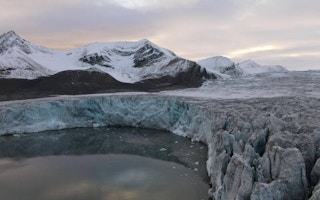From devastating floods to destructive wildfires, the impacts of accelerating climate change are increasingly visible — and a report due out next month from the world’s climate scientists will be “a wake-up call” for governments, analysts said Tuesday.
“We are now observing climate change with our own eyes in ways we did not broadly before,” said Corinne Le Quere, a climate scientist at the University of East Anglia and an author of the upcoming assessment by the Intergovernmental Panel on Climate Change (IPCC).
The report, compiled by the world’s top scientists and signed off by governments, will look at physical changes happening, and projected to happen, as a result of climate change — from harsher extreme weather to rising sea levels.
It is expected to confirm that the world is not on track to meet the goals of the Paris Agreement on climate change and that holding global warming to 1.5 degrees Celsius above preindustrial times is now “very challenging”.
At the request of governments, it will for the first time look at the growing possibility of “black swan” events.
Those are low probability but high impact shifts, such as irreversible melting of major ice sheets that could lead to huge increases in global sea levels.
“The fact we’re starting to see some of the impacts of climate change… really ought to be a wake-up call for global governments that this isn’t something they can ignore,” said Emily Shuckburgh, a University of Cambridge climate scientist.
“We’re seeing the impacts here and now today, and the impacts are going to get worse unless we take immediate action,” she told an online event.
But growing evidence of climate risks — including in richer nations — is not necessarily driving swifter action to counter them, said Richard Black, a net-zero emissions expert at Imperial College London’s Grantham Institute.
Government leaders in Australia, for instance, which in 2019 saw devastating wildfires that affected many of its 25 million people, have so far done relatively little to spur the country’s lagging climate efforts, he said.
“As a society you tend to get used to things fairly rapidly. If wildfire risks are going up, the first thing (you ask) is, ‘How do I adapt to that?’,” rather than why the government is not doing more to curb fossil fuel use, Black said.
Much of the technology needed to swiftly cut emissions and climate risks is now available and presents a huge investment opportunity, the scientists said — but political will to make the changes is still missing, they added.
When it comes to acting on climate change, “the decisions today are political decisions”, Le Quere said.
One advance that might drive greater political action is the growing ability of scientists to pinpoint how much of a particular extreme event — from a heatwave to a flood — was driven by climate change.
For instance, scientists said this month that record-smashing heatwaves in the US Northwest and Canada in late June and early July would have been “impossible” without planetary heating.
Such fast-improving “attribution” science may make it easier for disaster victims — whether individuals or countries — to sue the governments or companies most responsible for climate-changing emissions, legal experts say.
The upcoming IPCC report, due out on August 9, is likely to report an increase in the scientific confidence that human activities are driving most climate change, up from “extremely likely” in the last flagship report in 2013.
With both emissions and global average temperatures still rising, “obviously (the conviction) will be stronger than what we had in the past”, Le Quere said.
This story was published with permission from Thomson Reuters Foundation, the charitable arm of Thomson Reuters, that covers humanitarian news, climate change, resilience, women’s rights, trafficking and property rights. Visit http://news.trust.org/climate.








